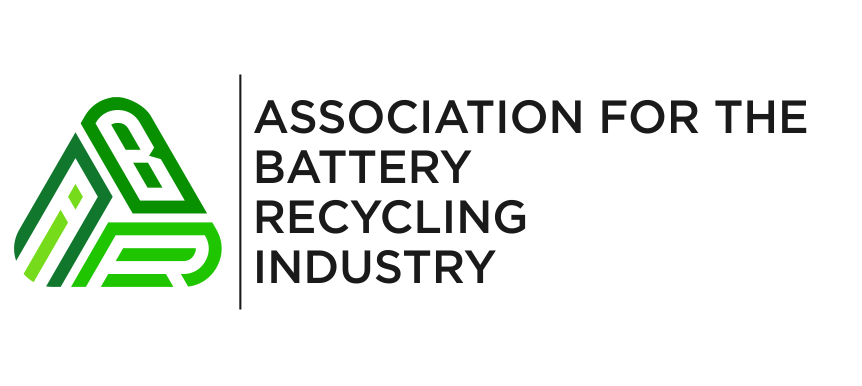The Essential Role of ABRI Working Groups
How members help shape policy, drive best practice and contribute to positive change
How does Australia create effective, practical policy for a circular battery economy? In 2025, the Association for the Battery Recycling Industry (ABRI) launched three new Working Groups to ensure that government policy and industry standards are informed by real-world expertise. These groups bring together leaders from across the battery value chain to identify challenges, develop solutions and guide policy development in line with ABRI’s 2025–2030 Strategic Plan.
Initially, ABRI’s draft corporate strategy identified Extended Producer Responsibility (EPR) and Used Lead-Acid Batteries (ULAB) as priority policy areas. A third group, focused on EV battery reuse and repurposing, was later established in response to member demand. Together, these groups form the foundation of ABRI’s collaborative approach to driving safer, smarter and more sustainable battery recycling practices across Australia.
At the heart of this effort is the collective expertise of ABRI’s 60+ active member organisations. A rich and diverse pool of knowledge that is critical to shaping meaningful outcomes for both industry and community. Members span the battery ecosystem: from consumer-tech and energy storage manufacturers, recyclers and waste managers, to environmental foundations, local government, engineers and consultants. Their real-world experience with regulations, supply chains, risks, constraints and innovations is precisely what is needed to craft policy that is sustainable, practical and effective.
The Purpose of ABRI Working Groups
Working Groups play a crucial role in delivering ABRI’s strategic objectives to:
Advocate to regulators for a viable, efficient, safe and sustainable battery recycling capability that supports industry growth.
Promote and educate industry stakeholders on the critical role of a safe and sustainable battery recycling sector.
Facilitate continuous improvement and the advancement of industry standards.
Build a compelling ABRI member value proposition through benefits and opportunities not available elsewhere.
How ABRI Working Groups Operate
Membership of ABRI Working Groups is limited to ABRI members and with each ideally consisting of 6–8 members. Members meet every two months, or as needed, with a focus on achieving measurable outcomes and respecting members’ time. Groups should include representatives from various business sizes and from a diverse range of states and territories. Each group will choose its chair through consensus.
There are overlaps between ABRI Working Groups, and interrelated policy issues will be informed by all groups.
All groups are time-limited to December 2026, in line with Phase 1 of the Corporate Strategy. There will be an opportunity for review towards the end of the term to establish the best paths forward into Phase 2.
Collaborating for Change: ABRI Working Groups Leading Australia’s Battery Circular Economy
Used Lead-Acid Batteries (ULAB) Priority Policy Working Group
The Used Lead-Acid Batteries (ULAB) Priority Policy Working Group focuses on:
Advocacy priorities and actions: addressing non-compliance issues related to the export of used lead-acid batteries.
Guideline updates: reviewing and updating the ABRI Guidelines for Packaging and Transport of Used Lead-Acid Batteries to reflect member feedback, including considerations for bin types, the use of wooden pallets (as per the ADG Code), and clarification of wrapping requirements.
Industry profile development: supporting the expansion of ABRI’s industry profile to capture data and insights specific to used lead-acid batteries.
Extended Producer Responsibility Working Group
ABRI’s Extended Producer Responsibility (EPR) Working Group plays a key role in shaping the future of battery recycling and e-waste management in Australia, ensuring that policies and frameworks support a safe, sustainable and circular battery economy.
The EPR Working Group will primarily focus on lithium batteries, embedded batteries and e-waste and will provide recommendations to the ABRI Executive Committee on:
Advocacy priorities: including the implementation of mandatory producer responsibility to promote safe and sustainable battery recycling.
Policy design frameworks: supporting the establishment of producer responsibility schemes across jurisdictions such as NSW and Victoria.
National guideline development: contributing to the Victorian EPA’s proposed National Guideline for Managing End-of-Life Lithium-ion Batteries, prepared on behalf of the Heads of Environment Protection Authorities.
EV Reuse and Repurposing Priority Policy Working Group
The first meeting of ABRI’s EV Battery Reuse and Repurposing Working Group is focusing on:
Standards development: including the implementation of recommendations from the Standards Australia report Secondary Batteries: Reuse, Repurpose and Recycle.
Dangerous goods transport policy priorities: including clarification of classifications and transport requirements for batteries within the reuse and repurposing supply chain.
Industry profile development: supporting the expansion of ABRI’s industry profile to include reuse and repurposing sector insights and data.
Strengthening Australia’s Battery Circular Economy
ABRI’s Working Groups represent the power of collaboration in shaping a safer, more sustainable battery industry. By bringing together members from across the supply chain, they ensure that policy and practice are informed by real-world experience and shared expertise.
Through these groups, ABRI continues to strengthen Australia’s battery circular economy — driving innovation, improving safety, and supporting a future where every battery is responsibly managed from design to end of life.
ABRI thanks all members who have already stepped forward to contribute and welcomes further participation as the groups progress toward their 2026 objectives.
